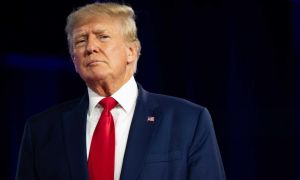Former President Donald Trump has issued stark warnings to the BRICS nations—Brazil, Russia, India, China, and South Africa—regarding their moves toward developing alternative currencies to the US dollar. He stated, "We are going to require a commitment from these seemingly hostile Countries... or, they will face 100% Tariffs," highlighting the seriousness of his threat if BRICS nations attempt to replace the dollar.
The warning coincides with the recent BRICS summit held from October 22 to 24, 2024, in Kazan, Russia, where member nations focused on promoting currency cooperation to decrease reliance on the US dollar. The BRICS nations are exploring various measures, such as bilateral trade agreements and local currency usage, to navigate away from dollar dependence.
This push for de-dollarization has grown significantly following increased geopolitical tensions and sanctions imposed by the West, especially against Russia due to its conflict with Ukraine. Many BRICS countries view the US dollar, and even the euro, as vulnerable to these geopolitical risks, which has fueled their desire for economic independence and alternatives.
The summit emphasized initiatives to trade using local currencies, creating shared payment systems, and even introducing ideas for launching BRICS commodities like grain exchange. These efforts reflect the bloc's strategy to minimize exposure to dollar volatility, allowing for greater financial independence among member nations.
The movement away from the dollar's dominance is not entirely new; it has been gradually losing ground since peaking at over 70% of global reserves around 2001, dipping to approximately 59% by early 2023. Amid these developments, Trump’s 100% tariff threats aim to reassert US economic dominance and maintain the dollar's pivotal role.
Further complicity lies with the Indian Rupee, which has recently weakened significantly, facing pressures from persistent foreign outflows and increased demand for the US dollar. Current economic instability is driving the Indian Rupee down—spurring worries among traders, especially as the Reserve Bank of India may intervene and sell dollars to support its currency.
Analysts are cautious about the effects of Trump’s tariffs and the broader policies he advocates, pondering their potential to fuel inflationary pressures within the US economy. Such measures may prompt the Federal Reserve to sustain higher interest rates, which could impact the stability of economies like India and other developing nations.
Adding to this dynamic, the development of alternative financial mechanisms has been highlighted, including the creation of systems to usher new commercial routes and currency systems outside typical dollar domination. Notably, the BRICS nations are moving forward with discussions about establishing payment frameworks to facilitate transactions with one another without relying on the greenback.
The challenges for BRICS are significant, especially the political and infrastructural obstacles standing between achieving their ambitious de-dollarization goals. The diverse political landscapes and economic disparities, coupled with the necessary coordination for financial systems, could hinder the establishment of any unified currency. Each member state holds important economic sovereignty interests, complicity to construct any joint currency structure.
While de-dollarization appears as the prominent agenda, the actual execution of such projects remains fraught with hurdles. Many of these economies still conduct substantial cross-border transactions using the dollar. Given the massive liquidity and market influence the dollar holds, their ambitions hinge on comprehensive structural changes to their financial infrastructures.
Looking forward, it remains to be seen whether Trump's threats will deter BRICS nations from pursuing these currency alternatives. This budding economic standoff may shape global trade policies and the dollar's future, leaving nations worldwide watching closely.
With BRICS’ collective control of about 42% of the world's central bank foreign exchange reserves, potential shifts hold vast significance. If successful, the BRICS nations may eloquently counterbalance existing financial paradigms, reshaping the global economic narrative and fundamentally challenging the established unipolar economic order.



